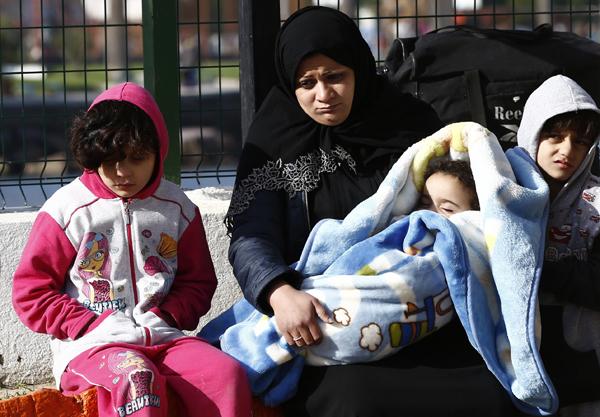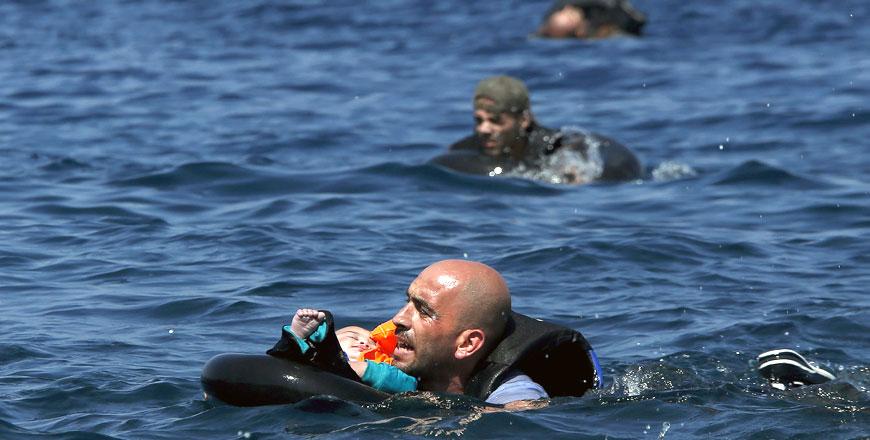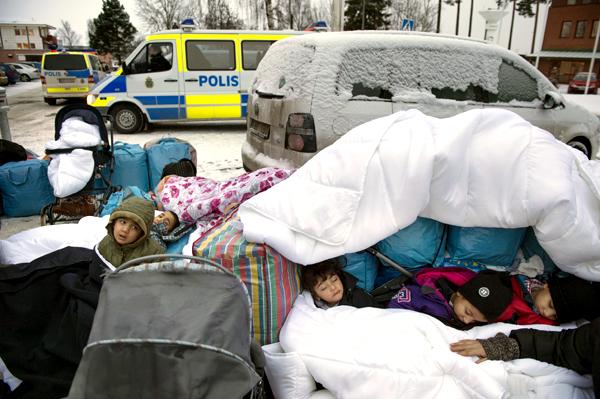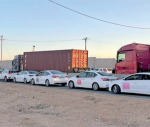You are here
Crisis-hit EU in asylum shake-up to share migrant burden
By AFP - Apr 06,2016 - Last updated at Apr 06,2016

Migrants are pictured at a Turkish coastguard station after a failed attempt at crossing to the Greek island of Lesbos, in the Turkish coastal town of Dikili, Turkey, on Wednesday (Reuters photo)
BRUSSELS — A divided European Union on Wednesday unveiled a fresh plan to shake up its failed asylum policy and force countries to share the burden of its unprecedented migrant crisis.
Just days after Greece began expelling migrants to Turkey under a controversial swap deal, a top EU official admitted that the bloc's current system is "not working".
"We need to reform our European asylum system," Commission Vice President Frans Timmermans told reporters in Brussels, as Europe battles its worst migration crisis since World War II.
The influx of more than 1 million migrants fleeing war and poverty has put the bloc's cherished border-free rules under severe strain and sparked sharp divisions among the 28 EU nations.
Under the bloc's existing rules — the so-called Dublin system — migrants seeking asylum must apply in the country where they first arrive and are returned there if they move to somewhere else in the EU.
But critics have slammed this system as obsolete and unfair to Greece and Italy, where most of the 1.25 million Syrian, Iraqi, Afghan and other migrants entered the bloc last year.
The rules in any case fell apart in 2015 as Greece and Italy, overwhelmed by the crisis, simply waved migrants onwards to countries where they wanted asylum, like Germany.
'Neither fair, nor sustainable'
"This is neither fair, nor sustainable," Timmermans said as he outlined two possible new approaches.
The first idea, dubbed "Dublin plus", would be to keep the existing system but add a "corrective fairness mechanism" to redistribute migrants from a member state grappling with a sudden influx of refugees.
A majority of countries support this option, a European diplomat told AFP.
A second, more radical, proposal would be to automatically distribute migrants across the EU based on member states' population, wealth and capacity to take in newcomers.
This option had the support of Germany and Sweden, which have taken in the lion's share of migrants, the diplomat said.
"Both options will provide much needed solidarity," Timmermans added.
But EU states have already struggled to implement an emergency scheme agreed last September to relocate 160,000 asylum seekers from Greece and Italy. Only 1,100 of these have been resettled so far.
The delays have been blamed on a range of factors — from governments trying to filter out jihadists from among the refugees following the terror attacks in Brussels and Paris to a lack of housing and educational services.
Sceptics say political foot-dragging has also played a part.
Tomas Prouza, the Czech state secretary for EU affairs, said the proposals appear to revive the same quota scheme that eastern European states in particular already rejected in the previous relocation plan.
"How long will @EU Commission keep riding this dead horse instead of working on things that really help?" Prouza tweeted.
But German Interior Minister Thomas de Maiziere said the proposals "go in the right direction" and that the debate will likely focus on how to distribute the migrants.
John Dalhuisen, Amnesty International's director for Europe and Central Asia, said the proposals on sharing responsibility head "broadly in the right direction".
"But there is potential for plenty of devils to lurk in the detail, particularly if they rely significantly on sanctions and coercion," he said.
Two-week deportation 'lag'
A last-minute flurry of asylum applications by migrants desperate to avoid expulsion from Greece to Turkey will likely cause a two-week "lag" in deportations under a controversial deal between Brussels and Ankara, Greek official Nikos Xydakis said Wednesday.
Around 200 migrants were deported Monday under the deal struck last month calling for sending back to Turkey all "irregular migrants" arriving in Greece after March 20.
But the returns system has stalled since then.
Under a "one-for-one" provision, for every Syrian returned, another Syrian refugee will be resettled from Turkey in an EU country, with numbers capped at 72,000.
Human rights watchdogs say the scheme is badly flawed, and on Tuesday the UN refugee agency (UNHCR) said it was concerned for 13 people who may have been unable to register for asylum before they were deported.
The EU-Turkey deal, as well as a series of border restrictions along the Balkans migrant route, appear to have sharply reduced the number of new arrivals in recent weeks, and Germany said it could lift its controls on the frontier with Austria if the trend continues.
Pope Francis will turn the spotlight on Europe's handling of the crisis with an expected visit on April 14 or 15 to Lesbos — part of the Greek island chain where hundreds of thousands of people arrived last year.
Related Articles
BRUSSELS — The European Commission proposed a system to distribute asylum seekers across the EU on Wednesday that aims to ease the load on s
BERLIN/BRUSSELS — Germany re-imposed border controls on Sunday after Europe's most powerful nation acknowledged it could scarcely cope with
STOCKHOLM — Sweden said it expects to expel up to 80,000 migrants whose asylum requests will likely be rejected, as another 24 people includ



















